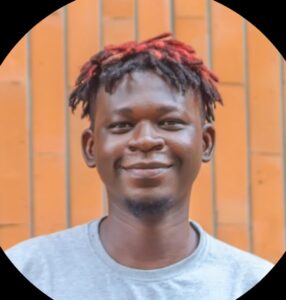This article is a continuation from this expository piece. Incase you missed it, you can read the article here.
Is Blockchain important to healthcare in Africa?
Yes. In fact, we believe that the blockchain’s unique technology can help the African healthcare sector. Some of the ways in which it can help include:
Data Security and Integrity
Healthcare data in Africa faces threats from hacking, corruption, and unauthorized access. Blockchain’s decentralized and immutable nature ensures that patient records are secure and tamper-proof, maintaining data integrity.
Interoperability
Africa’s healthcare systems often lack interoperability, hindering seamless data exchange between facilities. Blockchain can create a standardized, interoperable platform, enabling secure sharing of patient information across different healthcare providers and systems.
Transparency and Accountability
Corruption and fraud are challenges in many African healthcare systems. Blockchain’s transparency feature allows for real-time tracking of transactions, reducing the risk of fraud and ensuring accountability in healthcare delivery and financial transactions.
Streamlined Processes
Healthcare administration in Africa can be inefficient and prone to errors due to manual record-keeping and cumbersome paperwork. Blockchain technology can automate and streamline processes like billing, insurance claims, and supply chain management, reducing administrative burden and errors.
Enhanced Access to Medical Records
Many people in Africa lack access to their own medical records, leading to challenges in continuity of care, especially for mobile populations. Blockchain enables individuals to securely access and control their medical data, even across different healthcare providers, improving healthcare outcomes.
Medical Research and Development
Africa faces unique healthcare challenges, such as infectious diseases and limited resources. Blockchain facilitates secure and transparent sharing of medical data for research purposes, fostering collaboration among researchers and accelerating the development of treatments and vaccines tailored to African healthcare needs.
Healthcare Financing and Micropayments
In regions with limited banking infrastructure, blockchain-based solutions can be used for micropayments and streamline healthcare financing.
5 African companies building healthtech infrastructure on-chain
Already, a number of builders, medical experts and entrepreneurs have started exploring how to make the most of the blockchain technology and use it to solve some of the issues plaguing the healthcare systems in Africa.
Medixus
Described as a “social network” for health professionals, Medixus uses artificial intelligence (AI) and blockchain technology to connect medical experts, provide resources for them, and safeguard their patients’ health data on chain.
Baobab Circle
Uganda-based Boaboa Circle is a startup that provides cheap tech-driven solutions for people in low-income communities. Its array of products include the award-winning Afya Pap, Caregiver and Afya Pap Medic. These products make sure of innovative solutions in blockchain technology and machine learning to provide daily behavioral coaching, remote patient monitoring, and remote access to doctors.
Longenesis
Describes itself as a startup that provide patient-centric solutions in the form of a “digital platform for post-market research and patient engagement that bridges life-science companies, healthcare providers and patients.” With over 750 thousand patients onboarded, Longenesis uses on-chain solutions to link nutritionists, therapists and physicians on private and secure online calls to patients for immediate support on their medical conditions.
CozyCove
Built on the Solana ecosystem, CozyCove is a mental health on-chain solution that allows link mental health patients with one another, and a health professional. It offers on-chain solace for people suffering that are clinically depressed, and other forms of mental health to share connect with others that are going through the same illness as them. CozyCove makes sure that users identity are anonymized.
mPharma
mPharma is a Ghanaian startup that manages prescription drug inventory for pharmacies and their suppliers. Its proprietary Vendor Management Inventory (VMI) system is already being used in over 250 pharmacies in Ghana, Nigeria, Kenya, Zambia and Zimbabwe. In 2023, various reports showed that the company has started using blockchain technology to manage and fast track its inventory management system.
Challenges to building on the blockchain
Building on the blockchain presents several challenges that developers and organizations must navigate to realize the technology’s full potential.
One significant challenge is scalability. As blockchain networks grow in size and usage, they face limitations in transaction throughput and processing speed. For example, Bitcoin’s blockchain can handle only a limited number of transactions per second, leading to congestion and higher transaction fees during peak times. Scaling solutions such as layer 2 protocols and sharding are being developed, but implementing them effectively while maintaining decentralization remains a complex task.
Another challenge is interoperability. With numerous blockchain platforms and protocols in existence, achieving seamless communication and data exchange between different networks is essential for maximizing the technology’s benefits. However, interoperability standards are still evolving, and ensuring compatibility between disparate systems requires careful coordination and investment in cross-chain infrastructure.
Security is also a major concern in blockchain development. While the technology offers inherent security features such as cryptographic encryption and decentralization, vulnerabilities in smart contracts, consensus mechanisms, and network governance can still be exploited by malicious actors. Moreover, the irreversible nature of transactions on the blockchain means that any security breaches or coding errors can have far-reaching consequences, making robust security protocols and thorough auditing essential for safeguarding users’ assets and data.
Regulatory uncertainty poses another challenge to blockchain adoption and development. Different jurisdictions have varying regulations governing cryptocurrencies, token sales, and decentralized finance (DeFi) platforms, creating compliance burdens and legal risks for blockchain projects operating globally. Navigating this regulatory landscape requires close collaboration with legal experts and proactive engagement with regulators to ensure compliance while fostering innovation.
Moreover, user experience and adoption barriers hinder mainstream acceptance of blockchain applications. Complex wallet setups, unfamiliar interfaces, and technical jargon can alienate non-technical users, limiting the technology’s accessibility and usability. Improving user interfaces, educational resources, and onboarding processes is crucial for democratizing access to blockchain technology and driving widespread adoption.
Prospects for the future of Africa
The future of healthcare in Africa holds promising prospects, driven by various factors that are shaping the continent’s trajectory towards improved health outcomes.
Firstly, advancements in technology, including telemedicine, mobile health solutions, and artificial intelligence, are revolutionizing healthcare delivery, particularly in remote and underserved areas. These innovations enhance access to medical services, enable early diagnosis and intervention, and empower healthcare professionals with tools for more efficient patient care.
Moreover, increased investment in healthcare infrastructure, workforce development, and medical research is bolstering the continent’s capacity to address pressing health challenges. Governments, international organizations, and private sector stakeholders are collaborating to strengthen healthcare systems, expand access to essential services, and build resilient public health frameworks to respond to emerging threats such as pandemics and climate-related health risks.
Additionally, growing awareness and advocacy for preventive healthcare and wellness initiatives are driving a shift towards holistic approaches to health promotion and disease prevention. By prioritizing community engagement, education, and proactive healthcare interventions, Africa is poised to reduce the burden of preventable diseases and promote sustainable health and well-being for its population.
Rounding Up
The history of healthcare is that of a never-ending human effort to use the technology of the day for the betterment of all of humanity. Which is why it is not surprising that efforts are being made across the board to apply blockchain technology to health care. In Africa, where the stakes are high in terms of standardization of our healthcare systems, this technology may very well play an important role in efforts to improve the healthcare services.

About Author:
Isaac Melchizedek is as a content and marketing lead at ParagraphFive, a digital agency.



